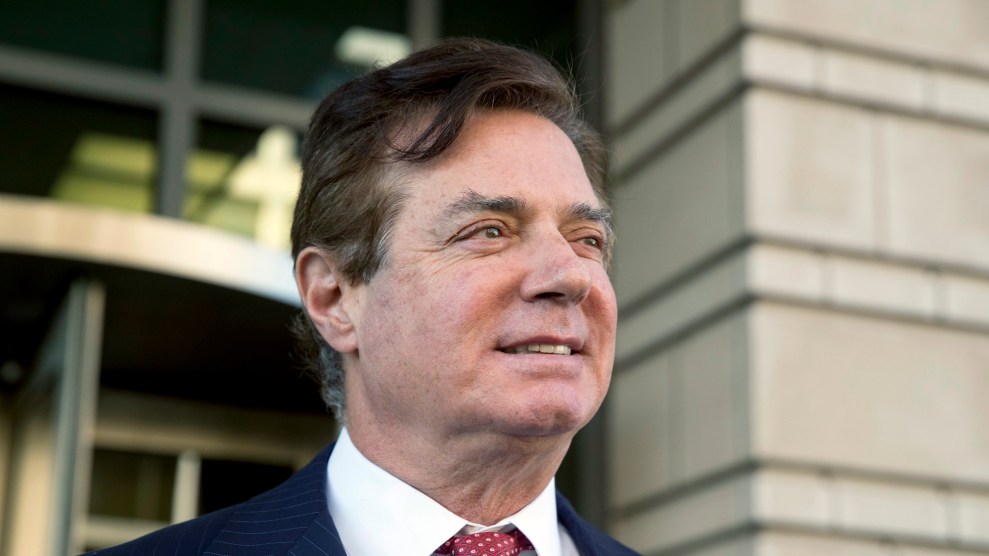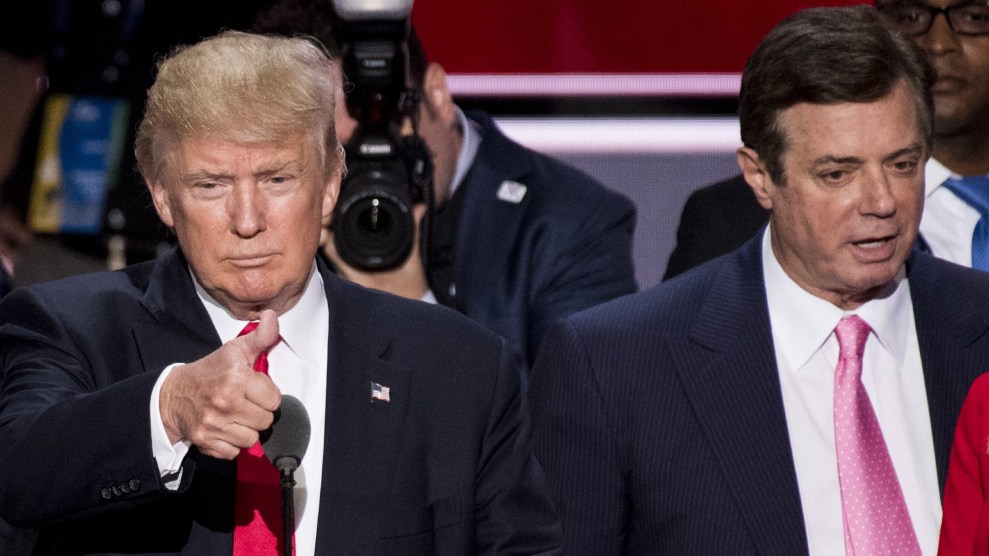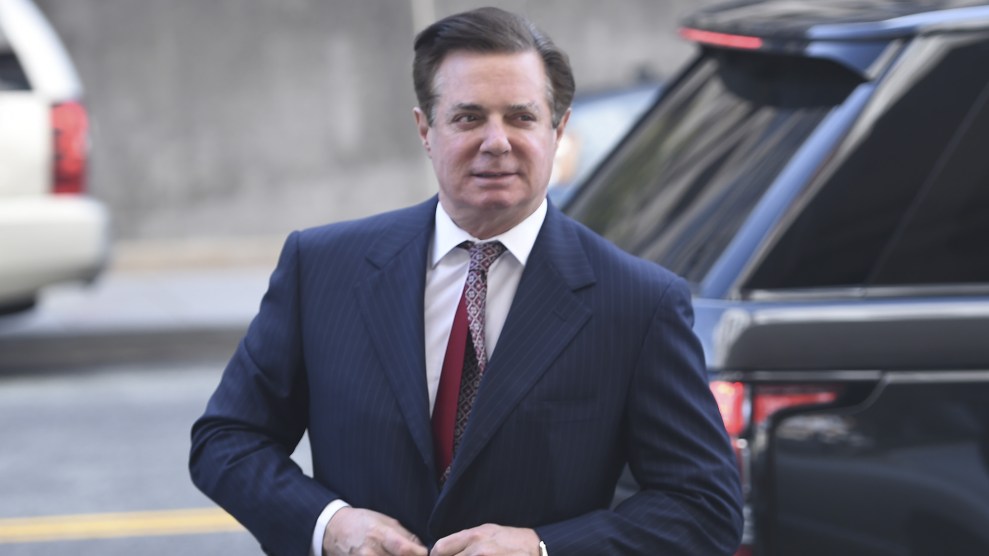
AP Photo/Andrew Harnik, File
A federal jury in Manhattan convicted Chicago banker Stephen Calk of bribing Donald Trump’s former campaign chairman Paul Manafort by approving risky loans for Manafort in exchange for his assistance in getting Calk an administration job.
Manafort oversaw Trump’s campaign from June to August 2016, stepping down after it was revealed he may have received off-the-books payments from a deposed Ukrainian president with close ties to Russia. But after being bounced from that position, Manafort remained on friendly terms with many Trump campaign officials—and maintained influence within Trump circles. Throughout the campaign, Manafort was struggling financially, but despite being arguably a bad risk, he was able to secure $16 million in loans from The Federal Savings Bank, which Calk ran. Prosecutors showed there was a quid pro quo: Manafort got those loans and lobbied Trump transition officials, including Anthony Scaramucci, to find Calk a job in the Trump administration.
Calk’s attorneys argued that he had done nothing wrong and that it was the wheeling-and-dealing Manafort who had committed the crimes by lying to Calk’s bank about his finances. But Calk was convicted on one count of bribery and a related conspiracy charge. He faces up to 35 years in federal prison. Manafort himself was convicted on a number of money laundering and tax fraud charges in 2018. A jury hung on the question of whether he had committed bank fraud during his interactions with The Federal Savings Bank. Trump pardoned Manafort shortly before leaving office.
During Calk’s trial, prosecutors demonstrated that Calk had pushed his bank to give Manafort the loans, while pressing Manafort to help him join Trump’s inner circle of advisers on the campaign and later the administration. Within days of the bank approving the first set of loans to Manafort, Manafort had Calk appointed to the Trump campaign’s council of economic advisers. On election night 2016, Calk texted Manafort about the status of another loan he had requested. Manafort subsequently leaned on Trump transition officials to consider Calk for a position.
One of the prosecution’s star witnesses was New York City financier Anthony Scaramucci, who advised the Trump transition and briefly served in Trump’s White House in 2017. He described how Manafort had approached him after the election and promoted Calk as a good choice for an administration job. Scaramucci said Manafort never mentioned that there was a financial relationship between him and Calk. Scaramucci testified that Calk pestered him for weeks with text messages asking for updates on Calk’s status as potential presidential appointee.
Calk never was appointed to an administration job. He will be sentenced in January.

















